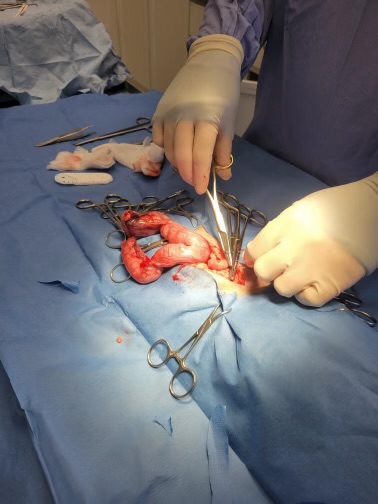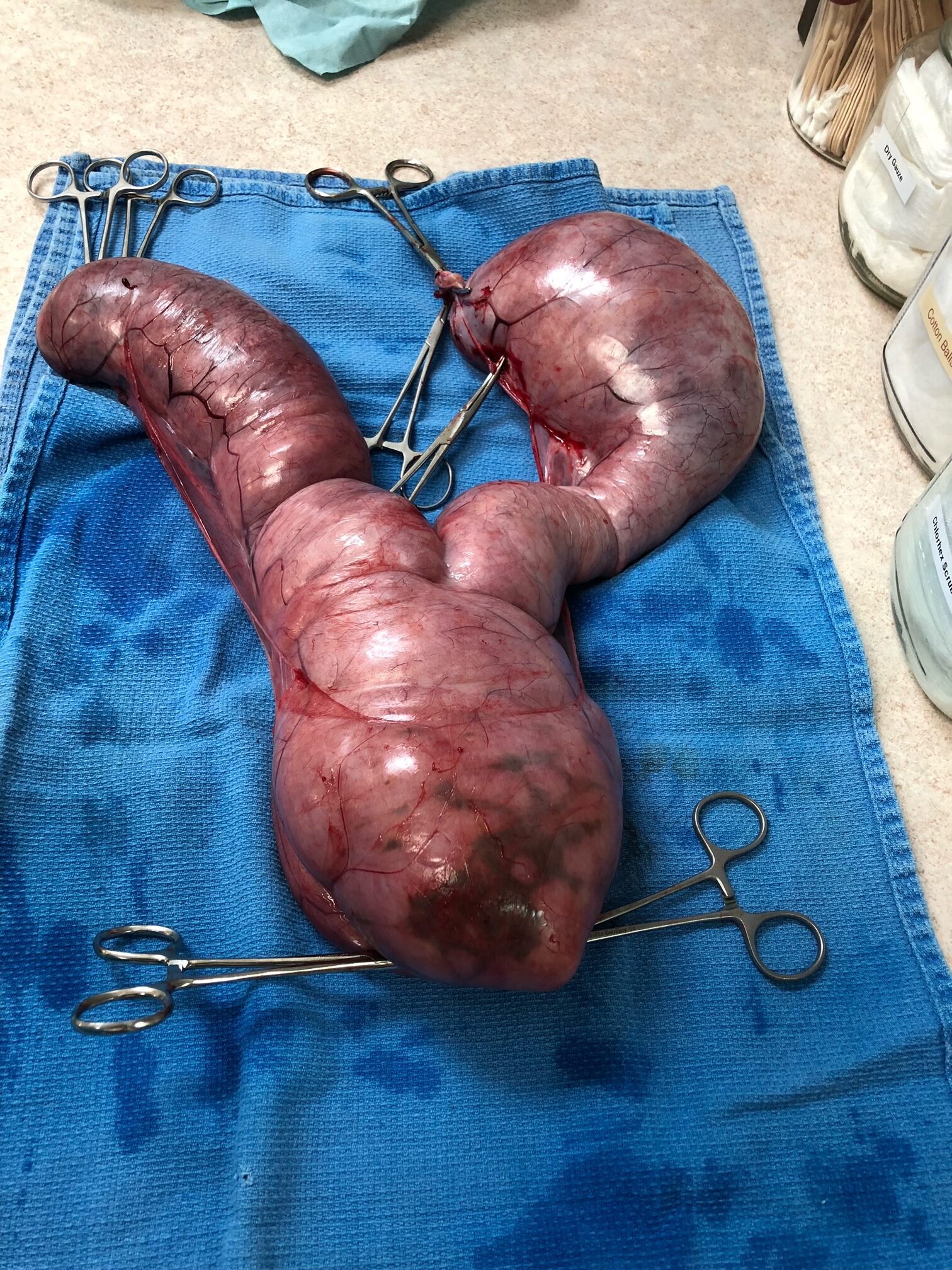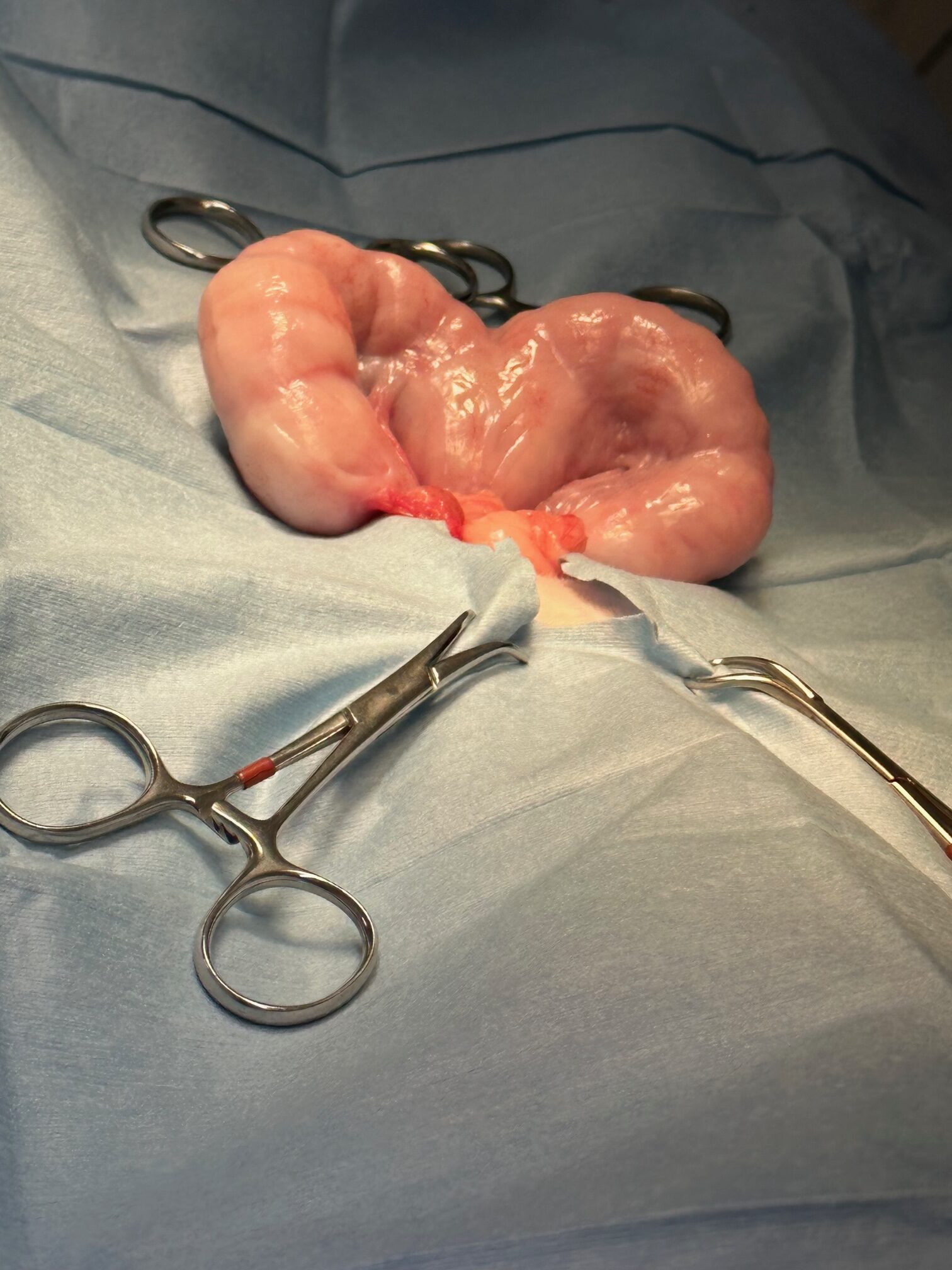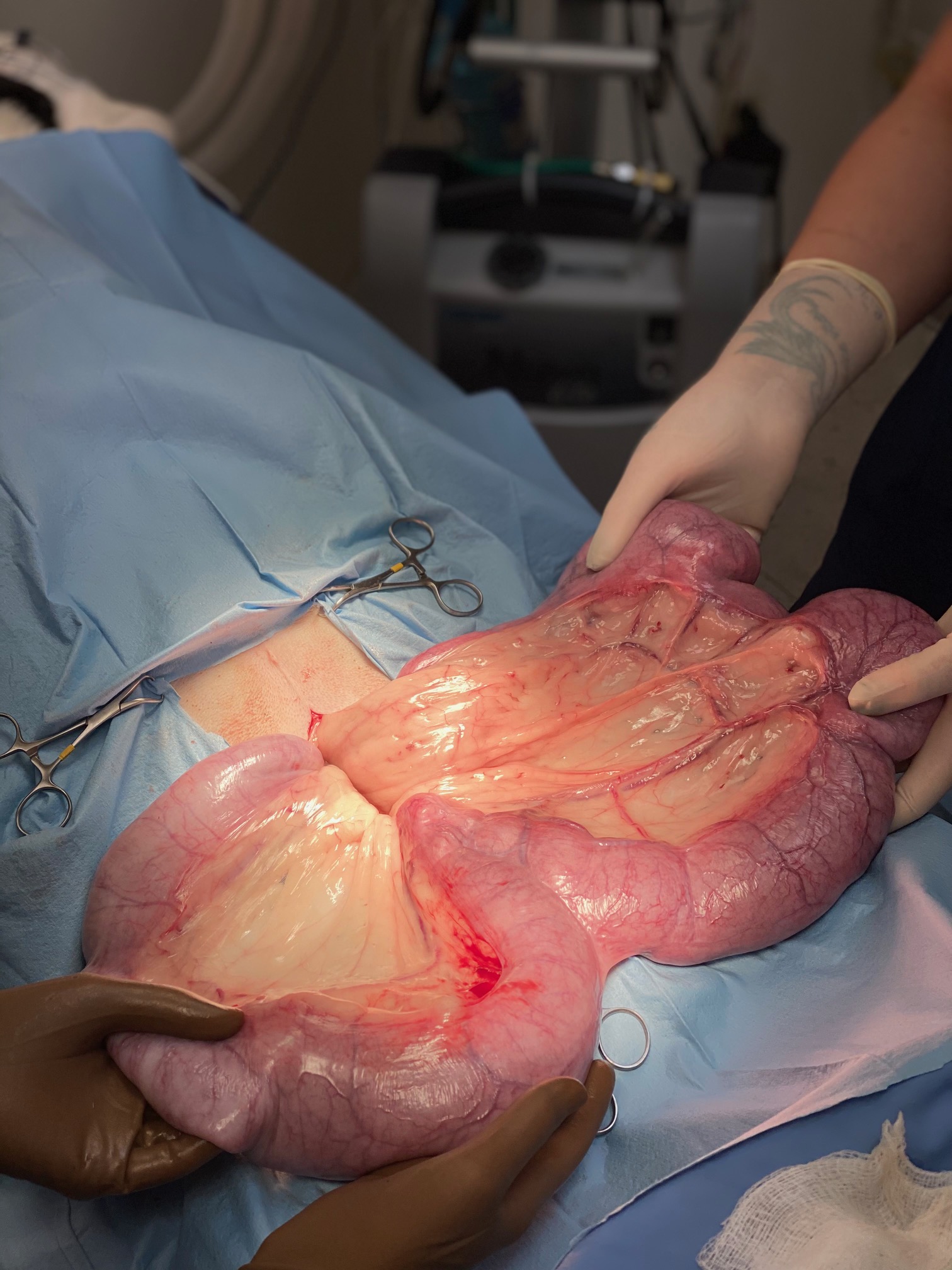Contact Us!
Pyometra/Uterine Infection
Animal Doctor provides pyometra/uterine infection surgical treatment. We accept referrals and provide second opinions.
Description: Pyometra is the condition when the uterus in a dog or cat becomes infected and filled with purulent discharge (puss).
Symptoms: Pyometra can cause a wide range of symptoms. Some of the more common clinical signs include vaginal discharge (bloody, mucus, colored), swollen vulva, fever, lethargy, pain, inappetence, and vomiting.
What to look for: Look for vaginal discharge, odor, swelling of the vulva, lethargy, pain, and decreased or no appetite.
How does it happen? Pyometra occurs when bacteria travel through the cervix and into the uterus during estrus (heat), leading to infection (a puss filled uterus). It is often diagnosed a few weeks after finishing estrus (heat cycle).




What questions do we ask?
- Any discharge from the vulva?
- When was your cat/dog’s last heat cycle?
- Is your pet lethargic? For how long?
- How is your pet’s appetite?
- Any vomiting or diarrhea seen?
What are the steps we take to treat your pet?
- We gather a complete medical history and perform a complete physical examination.
- Blood testing is completed to check for dehydration, infection, elevated protein levels, or other concerns.
- Abdominal radiographs are taken to check for an enlarged, fluid filled uterus.
- Abdominal ultrasound is often completed to check for an enlarged uterus.
- Emergency ovariohysterectomy (spay) is recommended due to the life threatening nature of pyometra.
Animal Doctor Pyometra/Uterine Infection potential treatment plans?
Oral medications
- Oral antibiotics are prescribed to be given at home after surgery (or occasionally when surgery is declined, against medical advice).
- Oral nonsteroid anti-inflammatory medications for pain and inflammation.
- Additional pain medications, such as Gabapentin, Tramadol, etc. may be prescribed.
- Antianxiety medications may be prescribed if indicated.
Injections
- Intravenous antibiotics
- Intravenous antinausea medication
- Intravenous anti-inflammatory / pain medications
Other Treatments/Procedures/Surgery
- Intravenous catheter and fluid support
- Surgical intervention (ovariohysterectomy, spay, OHE), typically on an emergent basis.
- Postoperative laser to help with healing and decrease inflammation of the incision.
What results have we seen




What are the risks if Pyometra is left untreated?
If pyometra is left untreated, the uterus has the potential to rupture inside the abdomen leading to sepsis, shock, and death.
Animal Doctor Provider
Dr. Makiah Versch











